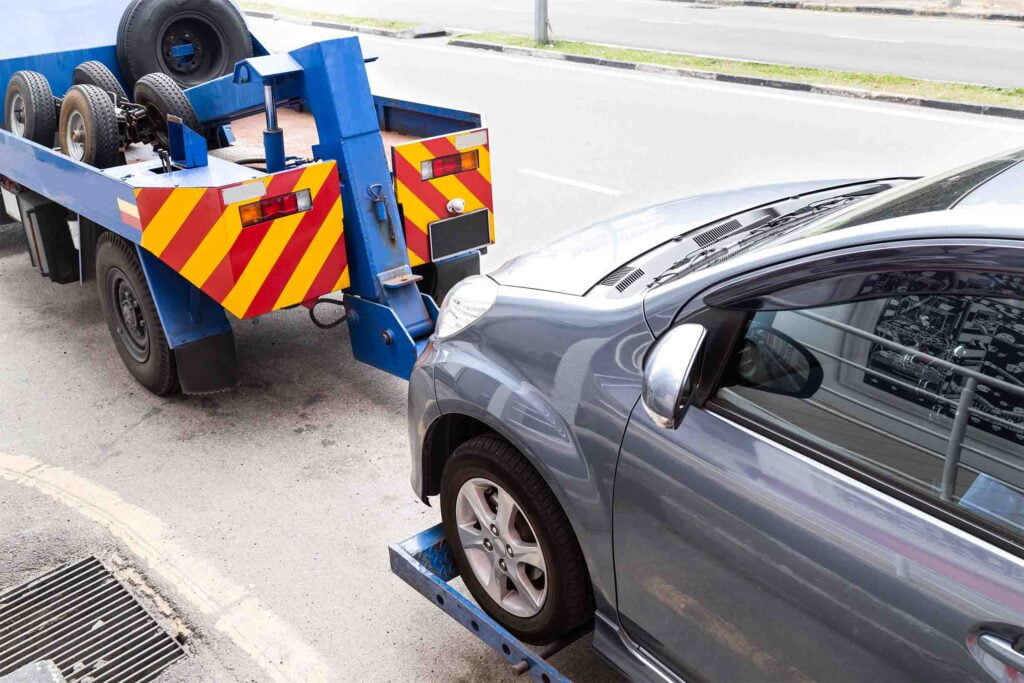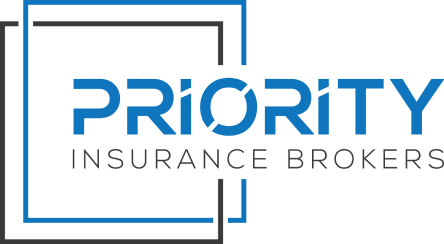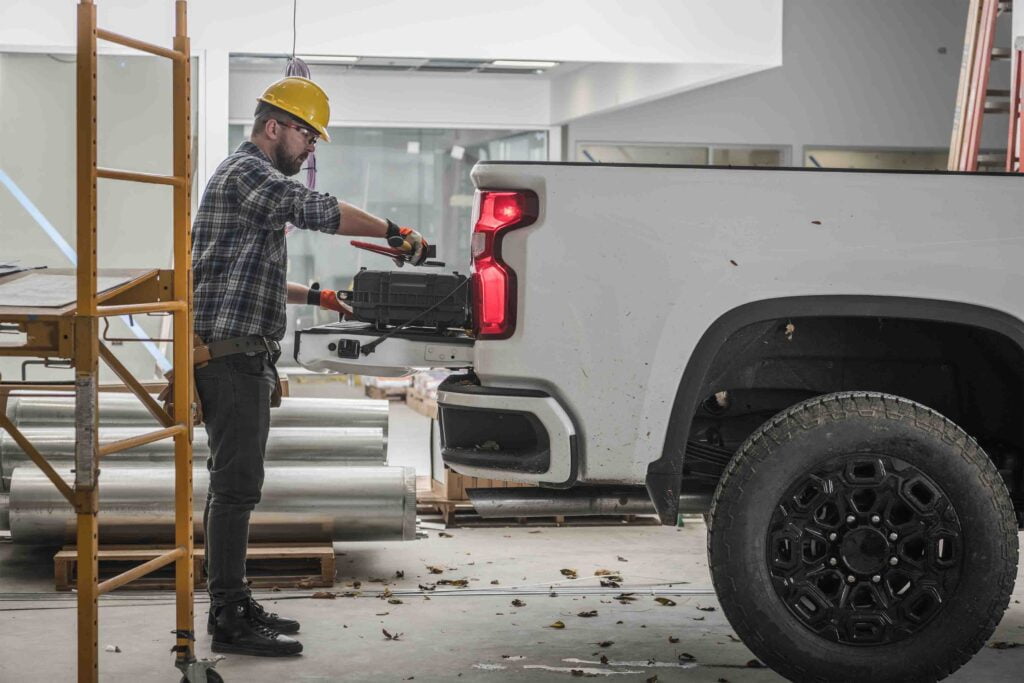Running a business is no easy feat; it requires hard work, dedication, and planning. One crucial aspect of running a business that should always be noticed is having the right insurance coverage for all vehicles used in operations. Business motor vehicle insurance protects against risks associated with running a vehicle for business purposes and is an essential component of business insurance. As a business owner, you must understand why business motor vehicle insurance is critical, what it covers, and how to ensure that your policy meets your insurance needs.
Understanding the Definition of Business Motor Vehicle Insurancehttps://priorityib.com.au/business-insurance-brokers-sydney/
Business motor vehicle insurance is an insurance policy that protects companies from financial losses due to accidents involving vehicles that are owned or leased by the business. This type of insurance covers many vehicles used for business purposes, including cars, trucks, trailers, and vans. This insurance protects the company, drivers, and passengers in the event of an accident, theft, or damage to the vehicle.
Business motor vehicle insurance provides coverage for a variety of incidents. Coverage may include damage to the vehicle due to a collision, theft, fire, vandalism, and weather-related incidents. Additionally, liability coverage is included, which covers legal expenses, medical costs, and property damage resulting from an accident in which the business is held liable.
Business motor vehicle insurance may also include coverage for non-owned and hired vehicles, which is essential if the company doesn’t own a vehicle but rents or leases them for business use. This coverage may also extend to employees who use their vehicles for business purposes.
It’s important to note that business motor vehicle insurance does not cover personal use of the company’s vehicles. In addition, if an employee causes an accident while under the influence of drugs or alcohol, the policy may not cover the damages.
The Risks of Running a Business Vehicle

Accidents
One of the most obvious risks of running a business vehicle is accidents. Company cars are often driven by multiple employees, which increases the chances of an accident. Moreover, company car accidents can result in costly damages, injuries, and even fatalities. As a business owner, you must ensure your employees are safe while driving company cars. To mitigate the risk of accidents, consider investing in driver training programs and telematic devices that monitor driver behaviour and vehicle performance.
Theft
Business vehicles are also at risk of theft, resulting in significant financial losses for your company. Whether it’s employee theft or external theft, you must protect your business vehicles. Implementing GPS tracking devices, parking vehicles in well-lit areas, and conducting regular vehicle inspections are some strategies to prevent theft. Also, ensure that your company’s insurance policy covers theft and vandalism.
Damages
Business vehicles are susceptible to wear and tear, and damages can be costly. Whether small scratches or major accidents, repairing company vehicles can eat your profits. Regular maintenance and servicing can help prevent damage and prolong the life of your vehicles. Additionally, consider opting for insurance policies that cover vehicle damages and roadside assistance.
Legal implications and potential liabilities
Running a business vehicle comes with legal implications and potential liabilities. Employees driving company cars on business trips may be liable for accidents, resulting in lawsuits and expensive legal fees. As a business owner, you must ensure your insurance policy covers liability claims and invest in legal help when necessary. A driver policy outlining your expectations and safety rules can also prevent legal issues and protect your business.
Compliance
Compliance with federal and state laws and regulations is essential when running a business vehicle. From licensing and registration to insurance and safety requirements, you must comply with all laws to avoid fines and legal issues. Invest in a compliance management system that oversees and tracks all compliance tasks, ensuring your business vehicles meet all requirements.
Types of Business Motor Vehicle Insurance Coverage
Comprehensive Coverage
Comprehensive coverage is the most extensive business motor vehicle insurance coverage. It protects your vehicles against theft, natural disasters, and vandalism. If one of your company’s vehicles gets stolen, damaged, or destroyed, replacing or repairing it will be covered. Comprehensive coverage is an excellent choice if you own valuable vehicles or use them in areas with high crime rates or frequent natural disasters.
Third-Party, Fire, and Theft Coverage
Third-party, fire, and theft coverage protect your business vehicles against damage caused by fires, theft, and third-party claims. This coverage is an excellent middle ground between comprehensive and third-party-only coverage. With this insurance policy, your vehicles will be covered if they are stolen, catch fire, or if a third party makes a claim against you. Note that this coverage doesn’t protect against standard vehicle damage, and you must pay out of pocket if it happens.
Third-Party Only Coverage
Third-party-only coverage is the most basic type of business motor vehicle insurance coverage. It only protects you from third-party claims if you’re responsible for an accident. This coverage doesn’t offer any protection for your vehicles in the event of an accident, theft, or fire. If you own inexpensive vehicles and use them rarely – this coverage might be enough to meet your insurance needs.
Specialised Coverage options
Finally, there are specialised coverage options. As a business owner, your industry might need coverage options tailored specifically for your products or services. For example, if you run a courier business, insurance companies offer courier insurance, including specific business policies. This coverage will protect the vehicles used for your courier business and the goods you’re delivering. If you have special requirements, check with your insurer to see what’s available. You also might want business travel insurance because you’ll be covered if something happens while on a business trip in your business car.
Benefits of Business Motor Vehicle Insurance

Financial protection against damages
Purchasing business motor vehicle insurance provides financial protection to your business when accidents or damages occur. If your business vehicle is involved in a collision, the insurance company pays for the repair or replacement cost, saving you from making huge payments from your business funds. Insurance companies offer different coverage options, such as comprehensive and collision coverage, which protect against a wide range of damages caused to your business vehicles. Furthermore, this coverage can extend to other non-owned vehicles used during business activities.
Coverage for legal fees and medical bills
Business vehicle accidents can lead to lawsuits and result in hefty legal fees and medical bills. Business motor vehicle insurance covers these expenses if you or your employees are involved in an accident while using the business vehicle. The insurance company pays for your legal defence, and the amount of coverage varies depending on the policy you select. This insurance coverage shields your business from crippling financial damage and litigation.
Peace of mind for business operations
Business motor vehicle insurance means you can operate your business without worrying about the risks of damage or loss of your business vehicles. You can focus on running your business while knowing your vehicles and employees are covered. It also ensures that business activities are not interrupted due to unforeseen events, as the insurance company helps get you back on track quickly.
Protects employees
Your business motor vehicle insurance covers damages and legal fees and protects your employees who may be involved in accidents while driving the business vehicle. This cover extends to your employees and passengers’ medical bills. Having an adequately insured vehicle helps you ensure the safety of your employees, which plays a vital role in building a positive work environment and boosting productivity.
Factors that Influence Insurance Premiums
Type and Value of the Vehicle
The make, model, and year of your vehicle will significantly impact your insurance rates. Cars that are expensive to repair or replace will have higher premiums, as will vehicles that are statistically more likely to be involved in accidents or thefts. If you drive a luxury sports car or one commonly targeted by thieves, you can expect to pay more for coverage.
Purpose of Use
How you use your car is another factor influencing your insurance premiums. If you use your car for business or commercial purposes, such as delivery or transport, you’ll pay more for coverage than driving for personal use. This is because commercial drivers are on the road more often, which puts them at a higher risk of an accident, theft or damage.
Driving History
Your driving record is a significant determinant of your insurance premiums. Drivers with a history of accidents, traffic tickets, and other violations are considered riskier and will pay more for insurance. On the other hand, drivers with a clean driving record are viewed as low-risk and will generally receive cheaper rates. Suppose you’re a young driver or a new driver. In that case, you may have to pay a higher premium, regardless of your driving history, because statistically, these groups have a higher accident rate.
Location
Where you live and where your car is parked when not used can also significantly influence your insurance rates. Urban areas with higher crime rates and heavy traffic are considered more risky, leading to higher premiums. Drivers who live in rural areas or suburbs generally enjoy lower rates because they’re less likely to be involved in accidents or theft.
Coverage Options and Deductibles
The level of coverage you choose for your auto insurance policy and the size of your deductible may also influence your rates. Higher coverage limits will lead to higher premiums, as will lower deductibles. However, you’ll pay more out of pocket should an accident happen.
Claims Process: What to Expect
Step-by-Step Guide to Filing A Claim
Filing a claim for damages due to a vehicular accident can be overwhelming. However, knowing the step-by-step procedures involved can make it more manageable. The following are the standard steps involved when filing a claim:
- Gather information: Make sure to collect as much information as possible. This would include the other driver’s insurance details, driver’s identification, and contact information.
- Document the damages: Take pictures of the damage incurred and note any information related to the accident.
- Contact your insurance provider: As soon as possible, contact your insurance provider and provide them with all the necessary details, including the police report, witness statements, and other relevant information.
The Role of Adjusters
An adjuster is an insurance company representative responsible for assessing and determining the settlement amount for a claim filed. They will investigate the accident and evaluate all aspects of the damages incurred. They would work with other individuals, such as mechanics and medical personnel, to determine the specific costs of the damages. The adjuster’s job is to determine the extent and validity of the claim and negotiate the settlement with the claimant.
Claims Assessment
The claims assessment process is necessary to evaluate and settle the claim accurately. Claims adjusters are professionally trained to do everything necessary to assess the damage and provide a fair settlement. Their role involves inspecting the damage, gathering witness statements, and reviewing other important details to decide on the claim and how much compensation the policyholder should receive.
Claims Reimbursement
After a successful claims assessment, the insurer would determine the amount to be paid to the policyholder. Once this is assessed, reimbursement will occur. The amount received would be the sum of damages minus deductibles. Payment of the compensation amount can come in several ways: it may be paid either to you or the repair shop of your choosing.
Common Exclusions in Business Motor Vehicle Insurance
Intentional Acts
Insurance policies, including business motor vehicle insurance, never cover intentional acts. If you intentionally cause an accident, your insurance policy will be void, and you must pay for all the damages. Intentional acts can range from road rage incidents to crashes where the driver intentionally swerves to hit another vehicle or object.
Non-Permitted Uses
Business motor vehicle insurance typically covers vehicles used for business purposes only. If your employees or other drivers use your business vehicle for personal reasons, your policy may not cover their actions. You may need additional coverage to protect your business and drivers from unexpected losses in this situation.
Driving Under the Influence
If a driver operates a business vehicle under the influence of drugs or alcohol and causes an accident, your insurance policy may not cover the damages. It is crucial not to allow employees to drive company vehicles under the influence. This exclusion is standard in all policies and can have severe consequences regarding costs and even court time.
Non-Approved Drivers
Your policy may exclude certain drivers from using your business vehicle. Some policies may only cover the vehicle when the driver listed on the policy is operating it. If someone else is driving your business vehicle and they cause an accident, then your insurance may not cover the damages. You will need to check your policy to ensure you have coverage for all drivers operating your business vehicle.
Underinsurance or No Insurance
If you have an accident with an uninsured or underinsured driver, your policy may not cover all the damages. Ensuring that your policy has enough coverage to pay for all losses if an accident occurs with an uninsured driver is essential.
Tips to Reduce Premiums
Investing in Vehicle Safety Features
Car insurance companies are in the business of taking risks. When you file a claim, you are asking the insurance company to restore you to the position you were in before an accident happened. Conversely, insurance companies make money when they can avoid paying or having fewer claims. This is why investing in safety features like cameras, lane departure warning systems, and automatic braking can significantly reduce your premiums. Cars with safety features are less likely to experience accidents, meaning the associated risks are much lower. Additionally, because accidents that do happen tend to be less severe, insurance claims tend to be much cheaper to fulfil.
Regular Maintenance and Driver Training
Another factor that can help reduce your insurance premiums is regular vehicle maintenance. Keeping up with your car’s maintenance can prevent accidents from happening due to issues like brake failure, blown-out tires, or cracked windshields. Driver training can also knock off money from your insurance bill. Taking driver training courses makes you less likely to experience accidents. Some insurance companies will reduce premiums if you present evidence of a completed training course.
Opting for Higher Deductibles
A deductible is an amount of money you pay out of pocket in case of an accident before your insurance company pays the rest. The higher your deductible, the less your insurer will charge in premiums. By choosing a higher deductible, you assume more of the risk associated with your automobile, and therefore, your insurance company will charge you less in premiums. Think about it this way- if your deductible is $200, you will be more likely to file a claim for an accident costing $300. However, if your deductible is $1,000, you will only consider filing a claim when the event is significant- such as totalling the vehicle or causing extensive damage. Choosing an affordable deductible that you can reasonably pay out of pocket in the event of an accident is essential.
Frequently Asked Questions
What insurance do I need for a car?
The type of car insurance you need depends on the state in which you live. Most states require automobile owners to carry minimum liability coverage, which pays for damage or injuries you are responsible for causing your vehicle. You may also consider additional coverages like comprehensive, collision, and personal injury protection.
How much for public liability insurance?
The cost of public liability insurance can vary drastically depending on the type and amount of coverage you purchase and the size and scope of your business. A typical policy might cost anywhere from a few hundred dollars to thousands yearly. It is important to shop around for quotes to get the best coverage at the most affordable price.
How much is workers compensation insurance in NSW?
The government sets workers’ compensation insurance in NSW and requires employers to cover their employees for medical costs and lost income due to a work-related injury or illness. The cost of this type of insurance depends on the size and scope of your business and how many employees you have. Generally, premiums can range from hundreds to thousands of dollars per year.
How long does an insurance claim take in Australia?
The length of time an insurance claim takes to process can vary depending on the type and complexity of the claim. Generally, most claims are processed within a few weeks; however, it may take longer for more complex or large-scale claims. It’s also important to remember that some insurers have specific deadlines for submitting paperwork related to your claim, and if these are met, it could ensure the processing of your claim. To ensure a timely resolution to your insurance claim, ensure you understand all the requirements related to filing and submitting paperwork. Additionally, it’s wise to stay in contact with your insurer throughout the process so they can provide updates on the progress of your claim.
Conclusion
In conclusion, business motor vehicle insurance is crucial for businesses that use vehicles for operational purposes. Having the right coverage ensures financial protection against damages and legal fees and provides peace of mind. Additionally, understanding the claims process and common exclusions can help prevent any surprises when filing a claim. It is crucial to note that fleet insurance can simplify coverage and reduce costs for businesses with multiple vehicles. Business owners should take the necessary steps to reduce premiums and ensure their coverage meets their insurance needs.







